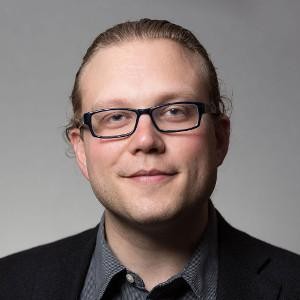AI for Sciences and Engineering: Monthly Seminar Series
About
The DSI Computing Systems for Data-Driven Science Center will host the monthly AI for Sciences and Engineering Seminar Series in the 2025–26 academic year. Designed to foster collaboration across domains, the series brings together researchers from diverse fields to share expertise and explore new directions.
Seminars will alternate between invited external speakers and Columbia-led lightning talks. The series will focus on four core themes: Quantum, Astrophysics, Environment/Climate, and Engineering, providing a forum for faculty to exchange ideas and build connections.
Registration
The series is open to Columbia University faculty members who are interested in data science across disciplines. If you’d like to join these meetings, contact Erin Elliott, Events and Marketing Coordinator at ee2548@columbia.edu to receive the location and calendar invite.
Upcoming Seminar
Date: Friday, February 6 (12:00 PM – 1:00 PM)

Alexander Urban, Associate Professor, Department of Chemical Engineering
Talk Title: Will We Simulate the Materials of the Future Before We Make Them?: Machine-Learning Interatomic Potentials for Materials and Process Discovery
Upcoming Meeting Schedule (Spring 2026)
Friday, March 13 (12:00 PM – 1:00 PM)
Friday, April 3 (12:00 PM – 1:00 PM)
Archive: Speaker Abstracts
-
Talk: Teaching Matter to Organize, Learn, and Evolve
Abstract: Advances in materials for photonics, computing, healthcare, chemical, and energy applications increasingly rely on complex 3D nano-architectures that are difficult to realize using conventional top-down fabrication or traditional self-assembly processes. To overcome these constraints, we developed an inverse design framework that uses DNA-programmable interactions and architecturally defined nanoscale building blocks to direct self-organization into prescribed 3D lattice arrangements. This strategy decouples component identity from assembly behavior, enabling the incorporation of diverse functional nanocargo into periodic and hierarchical structures. Through analysis of information-efficient interaction encoding, we identified key parameters that govern structural outcomes and demonstrated programmable static and dynamic transformations. We implemented this approach to realize complex material systems and demonstrated its feasibility in establishing an automated nanofabrication platform based on self-assembled processes. Expanding beyond static material design, we introduce a materials evolution concept inspired by biological systems. By establishing a materials “genotype,” the set of interactions required for a defined structure, and a corresponding “phenotype” that captures its functional performance, we are developing a strategy for guided diversification, selection, and iterative functional improvement. For example, high-performing architectures can be mutated to explore new design spaces and optimize mechanical, chemical, or optical functions. Together, inverse design and guided evolution, combined with automated fabrication processes, offer a unified approach for directing the self-organization of complex nanomaterials to achieve the desired functional behavior.
Date: Friday, December 5, 2025
-
Talk: Lost (and found) in latent land
Date: Wednesday, November 5, 2025
-
Talk: AI Enabled Materials Discovery: The Big Guns are Piling in But is it Working?
Abstract: We need better batteries, catalysts and magnets. Let’s use AI to discover new materials with better properties for them! No problem, we will train generative AI models to find new materials and condition them on desired properties. Great idea, and we can make a startup so that when we discover the new material we will patent it and become rich and famous. This is such good idea that just about all the big tech companies have piled in on the game. Deep Mind has published the GNOME database with 4 million “new” compounds. Not to be outdone, Meta has published OMat24 with 118 million new materials, and Microsoft has developed a materials foundation model. But do we have better batteries? Not yet. I will describe these developments, our own contributions to this work, and then explore if and where bottlenecks are in the whole enterprise.
Date: Friday, October 3, 2025
-
Talk: AutoClimDS: Climate Data Science Agentic AI
Abstract: Climate data science faces persistent barriers stemming from the fragmented nature of data sources, heterogeneous formats, and the steep technical expertise required to identify, acquire, and process datasets. These challenges limit participation, slow discovery, and reduce the reproducibility of scientific workflows. In this talk, I present a proof of concept for addressing these barriers through the integration of a curated knowledge graph (KG) with AI agents designed for cloud-native scientific workflows. The KG provides a unifying layer that organizes datasets, tools, and workflows, while AI agents—powered by generative AI services— enable natural language interaction, automated data access, and streamlined analysis. Together, these components drastically lower the technical threshold for engaging in climate data science, enabling non-specialist users to identify and analyze relevant datasets. By leveraging existing cloud-ready API data portals, we demonstrate that “a knowledge graph is all you need” to unlock scalable and agentic workflows for scientific inquiry. The open-source design of our system further supports community contributions, ensuring that the KG and associated tools can evolve as a shared commons. Our results illustrate a pathway toward democratizing access to climate data and establishing a reproducible, extensible framework for human–AI collaboration in scientific research.
Date: Friday, October 3, 2025